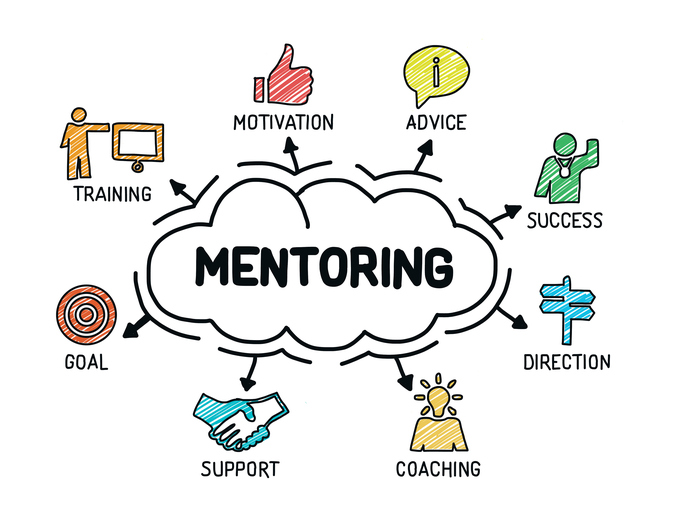
A Career Change Story: The Birth of Stitt + Zosky
June 4, 2019
Stacy Zosky Quoted in Law Times Article about Lawpod
November 10, 2021
Date: October 05, 2021Category: Career development strategies
Effective mentoring for employees has never been more critical as many workplaces embrace a hybrid return to office model that will include continuing to managing staff virtually as well as in person. For some, the remote model may continue indefinitely, which means mentoring and coaching opportunities may will need to be more scheduled with specific goals in mind.
While many have adapted to managing teams in a remote environment during the last year and a half, as time goes on, there are concerns about whether people will be able to develop their careers as they have in the past. Without access to regular face-to-face interactions and learning experiences that used to happen more organically, will people have the same opportunities to learn and grow in their jobs?
“I have heard from a lot of very busy young lawyers who are feeling that they are not getting the support they need,” says Nancy Stitt of Stitt + Zosky, a legal search and consulting company in Toronto. Stitt was a lawyer and the Director of Student Programs at Osler for 15 years and recalls what it was like to be a junior litigation associate trying to absorb as much as possible from the partners she worked alongside.
“I sense that for some the idea that they need more support is related to how busy they are and not related to work happening remotely. We’ve heard nice stories about remote onboarding and remote mentoring. I do hear from people that they do not feel as connected, and so an effort has to be made, and people should not be waiting to get back to the office to make connections.
”Whether in-person or virtually, Stitt says one of the significant challenges right now is finding the time to provide meaningful mentorship.
“I’m not sure the focus has been on mentoring as much as it otherwise might be because there has been so much else going on,” she says. “In such a busy legal market, with a continuing war for legal talent, it’s an important area to focus on, especially with retention being a concern.”
Embrace the tools of modern mentoring
For many, the pandemic has served to help accelerate learning in virtual settings. Mentors can also learn from mentees in the sharing of knowledge around using technology to augment learning and collaboration.
In a recent interview with LinkedIn, Andy Jassy, the CEO of Amazon told editor Devin Banerjee that modern mentorship is “a combination of modelling behaviour, coaching and giving people significant opportunities that allow them to stretch, and being there for them when they need help.”
Stitt says when she viewed the interview with Jassy his comment reminded her that those who are new to the profession need to witness behaviour to model it. “It would be helpful for mentors to be conscious of that and remember to invite mentees and juniors to client meetings, drafting sessions, witness preparation or whatever else they are working on. Especially when they might not otherwise think of doing so virtually, so that those junior lawyers have an opportunity to see behaviours in action, and so they can choose from those behaviours the ones that best work for them.”
Make an effort to offer help
For those in the position to mentor others, it’s essential to stop and think about those who may need support who are not reaching out, especially in remote settings where the opportunity to catch senior leadership in their office or at the water cooler doesn’t exist. Having the right mindset to be proactive is critical to make sure those who need help are getting the right support.
“I was speaking to a senior associate lawyer recently who said she tries to reach out to new associates regularly knowing that it’s difficult for them right now. You can have a virtual coffee, and it may be easier to schedule a half-hour mentoring call in your calendar than it is to have a two-hour lunch,” she says.
Technology adopted during the pandemic has also allowed for greater virtual collaboration and coaching, such as sharing one’s screen for document review or using online document collaboration tools.
“Mentors can take advantage of the tools available – it can happen in an office or online,” says Stitt. “Hopefully the lawyers who prioritized training and mentoring in person are still prioritizing it virtually, and on days when lawyers are in the office together.”
Redefining expectations around mentoring
When organizations are moving from purely working from home arrangements to a combination of at-home and in-office work, it may be a good time to redefine expectations on mentoring. To make sure people don't feel isolated, plan regular check-ins with mentees, set a schedule, stick to routine calls, and plan some in-person sessions if possible. It’s also a good time to ask more open-ended questions such as where does the person want to gain experience or receive coaching? Do they feel they are lacking skills in certain areas that could benefit from a structured series of conversations?
Stitt also suggests that retreats may become more popular as part of an organization’s efforts to provide learning, mentorship, and build culture away from both the traditional office and the home office.
As we all move forward in this next stage of work life, take some time to think about how you can reach out to help mentor someone who could benefit from support in and help take taking their career to the next level.
From the Osler Fall Alumni Newsletter 2021




